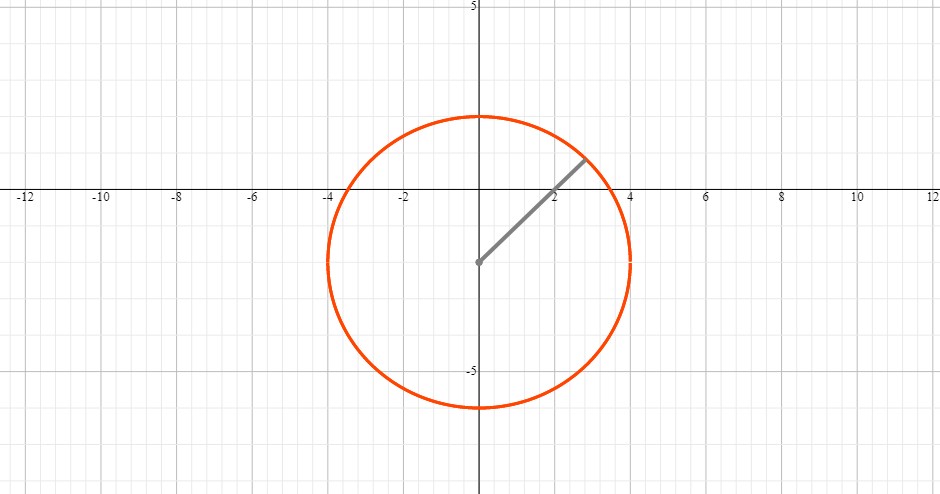Okay so like for an equation like x^2+y^2+4y-12=0...how would i convert that to the standard form of a circle, (x-h)^2+(y-k)^2=r^2?
1 Answer
May 2, 2018
Please see below.
Explanation:
.
We need to do what is called "Completing the Square" as follows:
Since there is no
What we did was adding a
Now, we can rewrite the
This equation is now in the form of:
If you compare the two equations you will find:
It is the equation of a circle whose center is at


